7 Essential Screw Compressor Parts You Need for Optimal Performance
In the world of industrial manufacturing, screw compressors are integral to efficient operations, often responsible for providing the necessary compressed air for various processes. According to a report by MarketsandMarkets, the screw compressor market is projected to reach USD 11.7 billion by 2025, growing at a CAGR of 5.5%. This growing demand underscores the importance of understanding and maintaining essential screw compressor parts to ensure optimal performance. Key components such as rotors, bearings, and control systems directly impact the reliability and efficiency of these machines. By focusing on these critical parts, businesses can enhance operational efficiency, reduce downtime, and extend equipment lifespan, ultimately leading to improved productivity and cost savings in their operations. As we delve into the seven essential screw compressor parts, we will explore how each contributes to achieving peak performance in a competitive industrial landscape.

7 Key Components That Enhance Screw Compressor Efficiency and Longevity
When it comes to ensuring the efficiency and longevity of screw compressors, understanding their key components is crucial. Each part plays a vital role, contributing not only to performance but also to operational costs. According to the Compressed Air and Gas Institute (CAGI), maintaining optimal performance can enhance energy efficiency by up to 30%, leading to significant cost savings over time.
One of the essential components is the airend, which directly influences the compressor's output and efficiency. Regular inspections and timely replacements can prevent costly downtime. Another critical part is the cooling system; a well-maintained cooling system can reduce heat transfer losses and improve overall compressor life. It is recommended to monitor the coolant levels frequently and ensure that the cooling fins are clean to maintain optimum performance.
**Tip:** Regularly check and replace oil and filters as per the manufacturer's guidelines to help avoid premature wear and maintain system efficiency. Additionally, integrating advanced monitoring systems can provide real-time data on performance metrics, allowing for proactive maintenance and further enhancing compressor longevity.
7 Essential Screw Compressor Parts You Need for Optimal Performance
| Component | Function | Material | Maintenance Requirement |
|---|---|---|---|
| Screw Rotors | Compress air by rotating in tandem | Hardened Steel | Regular inspection for wear |
| Air Filter | Removes particulates from intake air | Polyester | Replace every 6 months |
| Separator Filter | Separates oil from compressed air | Fiberglass | Replace every 1,000 hours |
| Lubrication System | Reduces friction between moving parts | Aluminum Alloy | Regular oil change every 1,000 hours |
| Drive Motor | Provides power for compression | Copper and Steel | Check alignment and cooling |
| Cooling System | Maintains optimal operating temperature | Copper Tubing | Clean regularly to avoid blockage |
| Control Panel | Monitors and controls compressor operation | Plastic and Circuit Components | Test functionality every month |
Understanding the Role of Rotors in Achieving Optimal Compression Ratios
The rotors of a screw compressor are fundamental components that directly influence the efficiency and effectiveness of the compression process. These helical rotors work in tandem to trap and compress the air within the chamber, allowing for a continuous flow of high-pressure gas. The design and precision of these rotors are crucial in achieving optimal compression ratios, which ultimately determines the performance output of the compressor. With variations in size, geometry, and material, the right rotor configuration can significantly enhance energy efficiency and reduce operational costs.

Understanding the specific role of rotors also extends to their maintenance and potential upgrades. Worn or damaged rotors can lead to ineffective compression, increased energy consumption, and operational failures. Regular inspections and timely replacements of these parts ensure that the compressor functions at peak performance. Additionally, advancements in rotor technology, such as improved coatings or innovative designs, can further optimize the compression process, enabling industries to achieve better results while minimizing downtime. By focusing on the rotors, operators can ensure their screw compressors perform optimally in various applications.
The Importance of Bearings in Reducing Wear and Ensuring Equipment Reliability
When it comes to screw compressors, the importance of bearings cannot be overstated. Bearings play a critical role in minimizing wear and tear on the compressor's moving parts, which directly impacts the overall reliability and efficiency of the equipment. By reducing friction between the rotating and stationary components, high-quality bearings ensure a smoother operation that leads to longer service life and reduced maintenance costs. This is especially crucial in industrial settings where downtime can result in significant financial losses.
Moreover, selecting the right type of bearings is essential to withstand varying loads and operating conditions. For instance, heavy-duty applications may require specialized bearings that can handle higher loads while maintaining optimal performance. Regular inspection and timely replacement of worn-out bearings are equally important; doing so can prevent catastrophic failures and prolong the life of the compressor. Investing in quality bearings is therefore not just a matter of performance but also a crucial strategy for ensuring long-term operational reliability in screw compressors.
How Proper Lubrication Improves Performance and Reduces Energy Consumption
Proper lubrication is critical for the optimal performance of screw compressors, as it directly impacts the efficiency and longevity of these essential industrial machines. Effective lubrication minimizes friction and wear between moving parts, allowing the compressor to operate smoothly and at peak efficiency. When lubricants are properly formulated and applied, they not only enhance machine performance but also play a significant role in reducing overall energy consumption. This is particularly important in today’s energy-conscious environment, where businesses are constantly seeking ways to lower operational costs while maintaining high productivity levels.

Moreover, advancements in lubricant technology are paving the way for better formulations that offer superior properties, including greater stability and resistance to oxidation. These high-performance lubricants can withstand extreme operating conditions, providing a consistent protective film that reduces the risk of breakdowns. As the demand for reliable and efficient compressor operations grows, industries are increasingly recognizing the need to invest in quality lubrication solutions. By prioritizing proper lubrication strategies, companies can achieve not only enhanced efficiency but also significant savings in energy expenditure over time.
Air Filters: Essential for Maintaining Air Quality and Preventing Equipment Damage
Air filters play a crucial role in the performance of screw compressors, helping to maintain air quality and prevent equipment damage. These filters capture dust, dirt, and other contaminants that can enter the system, ensuring that only clean air is compressed. Over time, air filters can become clogged, leading to reduced efficiency and potential damage to the compressor. Regular maintenance and replacement of air filters are essential to keep your compressor running smoothly.
To enhance the longevity of your air filters, consider implementing a routine inspection schedule. This not only helps in identifying any accumulated dirt early but also allows for timely replacements, ultimately saving you costs in repairs and downtime. Another tip is to choose the right type of air filter for your specific compressor model to ensure optimal performance. The right filter can improve airflow and efficiency, making a noticeable difference in your compressor's operation.
Moreover, monitoring the environment where your compressor operates can aid in filter maintenance. If your compressor is situated in a dusty or polluted area, more frequent filter changes may be necessary. By staying proactive about your air filter maintenance, you can help secure the overall health of your screw compressor and maintain peak performance over its lifespan.
7 Essential Screw Compressor Parts for Optimal Performance
Related Posts
-
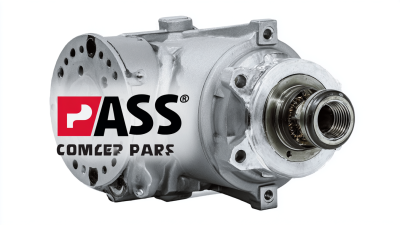
5 Reasons Best Screw Compressor Parts Enhance Your Operational Efficiency
-
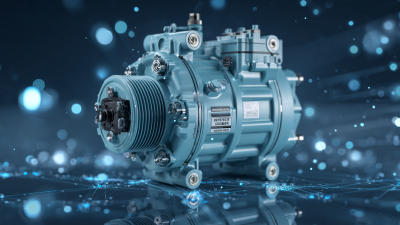
Solutions for Sourcing the Best Compressor Parts: Boost Efficiency with Quality Components
-

7 Expert Tips for Choosing the Best Industrial Air Compressors Based on 2023 Market Trends
-
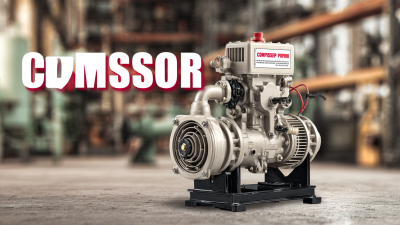
The Ultimate Guide to Selecting the Best Compressor Pumps: Industry Insights and Expert Tips
-
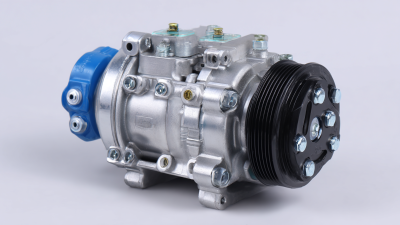
Superior Compressor Parts from China's Leading Factories Trust Built on Quality
-
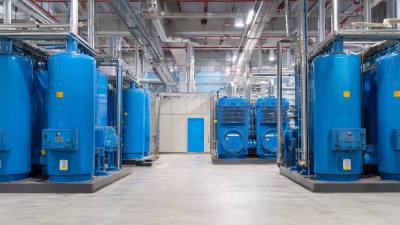
What are the Advantages of Using the Best Air Dryers


